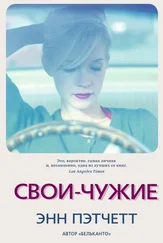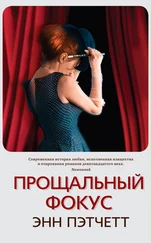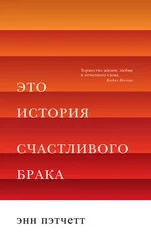Энн Пэтчетт - The Dutch House
Здесь есть возможность читать онлайн «Энн Пэтчетт - The Dutch House» весь текст электронной книги совершенно бесплатно (целиком полную версию без сокращений). В некоторых случаях можно слушать аудио, скачать через торрент в формате fb2 и присутствует краткое содержание. Город: London, Год выпуска: 2019, ISBN: 2019, Издательство: Bloomsbury Publishing, Жанр: Историческая проза, на английском языке. Описание произведения, (предисловие) а так же отзывы посетителей доступны на портале библиотеки ЛибКат.
- Название:The Dutch House
- Автор:
- Издательство:Bloomsbury Publishing
- Жанр:
- Год:2019
- Город:London
- ISBN:978-1-5266-1496-4
- Рейтинг книги:5 / 5. Голосов: 2
-
Избранное:Добавить в избранное
- Отзывы:
-
Ваша оценка:
- 100
- 1
- 2
- 3
- 4
- 5
The Dutch House: краткое содержание, описание и аннотация
Предлагаем к чтению аннотацию, описание, краткое содержание или предисловие (зависит от того, что написал сам автор книги «The Dutch House»). Если вы не нашли необходимую информацию о книге — напишите в комментариях, мы постараемся отыскать её.
Goodreads Choice Award Nominee for Historical Fiction (2019)
Selected as Book of the Year in The Times, Guardian, Daily Telegraph, Washington Post, Herald and Good Housekeeping.
A heart-wrenching new novel of the unbreakable bond between a brother and sister, their childhood home, and a past that will not let them go—from the Number One New York Times bestselling author of Bel Canto and Commonwealth. cite
The Dutch House — читать онлайн бесплатно полную книгу (весь текст) целиком
Ниже представлен текст книги, разбитый по страницам. Система сохранения места последней прочитанной страницы, позволяет с удобством читать онлайн бесплатно книгу «The Dutch House», без необходимости каждый раз заново искать на чём Вы остановились. Поставьте закладку, и сможете в любой момент перейти на страницу, на которой закончили чтение.
Интервал:
Закладка:
We made a terrible mistake but even now it’s hard for me to say exactly whose mistake it was. Mr. Brennan’s’? Mrs. Kennedy’s? Maeve’s? My own? Mrs. Kennedy made it to the hospital before us and was waiting with Mr. Brennan when we arrived. Mr. Brennan told us what had happened. He told us that he didn’t know CPR. Hardly anyone knew CPR in those days. His wife was a nurse and she had told him he should take the class but he hadn’t done it. There was such pain on his face that Maeve hugged him and Mr. Brennan leaned against her shoulder and cried.
They had kept our father in a small room off to the side of the emergency room so that we wouldn’t have to go the morgue. He was in a regular hospital bed, his tie and jacket gone, his blue shirt unbuttoned at the neck and stained with blood. His mouth was open in a way that made it clear to me his mouth could not be closed. His bare white feet were sticking out from the bottom of the sheet. I couldn’t imagine where his shoes and socks had gone. I hadn’t seen my father’s feet in years, since whatever summer it was we had last gone to the lake. There was a terrible, bloodless cut on his forehead that had been crudely taped together. I didn’t touch him, but Maeve leaned over and kissed his forehead just beside the bandage, then kissed it again, her long braid falling across his neck. She didn’t seem to mind his open mouth but it was horrifying to me. She was so tender with him, and I found myself thinking that when he woke up I would tell him how good she was, how much she loved him. Or maybe I would tell him when I woke up. One of us was sleeping and I didn’t know which one of us it was.
The nurse gave us too much time alone with him, and then the doctor came into the room and explained the nature of the death. He told us that the heart attack had happened very fast and that there was nothing that could have been done to save him. “Chances are he was dead before he fell. Even if it had happened right here in the hospital,” he said, “chances are it wouldn’t have been any different.” This was before I knew that doctors could lie as a means of comfort. Without an autopsy, he was telling us nothing more than a likely story, but we clung to it without question. Maeve was given papers to sign and in return received his suit jacket and tie in a bag, along with a manila envelope containing his wallet, watch and wedding ring.
We were very young, and our father had died. To this day I don’t think we were responsible. We came in the kitchen door and Sandy and Jocelyn were there and we told them what had happened. The second they started to cry I knew what we had done. Sandy had her arms around me and I twisted to get away from her. I had to find Andrea. It had to be me finding Andrea, she could not find us there, but as soon as I’d had the thought she walked into the kitchen, into the mess of the four of us and our collective, exclusive grief. She had heard the howling. Jocelyn turned and put her arms around her employer, something I would guarantee she’d not done before or since. Oh, Mrs. Smith, was what she said.
The look of terror that came over Andrea then—that look has stayed with me all these years. Long after I could no longer see my father on his hospital bed, I could still see the fear on Andrea’s face. She took a step back from us.
“Where are my girls?” she whispered.
Maeve shook her head the smallest bit, because of course by then she realized it too. “They’re fine,” she said, her voice barely coming out of her mouth. “It’s Dad. We’ve lost Dad.”
There was the plastic bag of his clothes on the kitchen table, the evidence against us. Later we would tell ourselves that we were sure Mrs. Kennedy had called her, but nothing had happened to make us think that. The truth was we had come this far and had never given Andrea a thought. Our cruelty became the story: not our father’s death but how we had excluded her from it.
Had we done a better job would the outcome have been the same? Had Mr. Brennan called Andrea and not Mrs. Kennedy (but Mr. Brennan had never met Andrea, and had worked with Mrs. Kennedy for twenty years), had Mrs. Kennedy called Andrea and not Maeve (but Andrea was rude to Mrs. Kennedy on the phone every time she called our father at work, never saying one thing more than “Let me speak to my husband.” Mrs. Kennedy would never have called Andrea. She told me as much at the funeral.) Had Maeve left Otterson’s and rushed to the Dutch House to tell Andrea instead of coming to the school to get me, or if we had left the school together and gone to pick her up, the three of us going to the hospital, where would we be now?
“Right here,” Maeve would say. “We didn’t make her who she is.”
But I was never sure.
Andrea’s hurt was her prize blue ribbon, and in return what I felt in those blinded days just after my father’s death was not the grief for who I had lost but the shame over what I had done. Norma and Bright were solemn every minute they could remember to be, but they were still too young. The sadness was impossible for them to hold onto. Andrea kept them out of school the day after he died but on the next day they begged to go back. Home was so sad. I went back to school too, not wanting to be in the house with her. She bought twin plots in the Protestant cemetery and made clear her plans to bury him there beside the empty space where she planned to go to herself someday. That was when Maeve called Father Brewer. Andrea and the priest disappeared into the library for twenty-five minutes, the doors closed, and when they came out again my father’s rights were restored. Andrea had agreed to have our father buried in Catholic cemetery. She held that against us as well.
“He’ll be all alone now,” she said when she passed me in the hall. No preamble. “Just the way you want it. Well, good for you. I’ll be damned if I’m going to spend eternity with a bunch of Catholics.”
The day after they were married, Maeve and my father and I were going off to Mass. Andrea was sitting alone in the dining room, and in an attempt to be friendly I asked my new stepmother if she and the girls wanted to come with us.
“You wouldn’t catch me dead in that place,” she said, and went on eating her soft-cooked eggs as if she had reminded me to take an umbrella.
“If she hates the Catholics so much you have to wonder why she married one,” Maeve said as we were climbing into the car.
And my father laughed, a big-hearted laugh of the kind we rarely heard from him. “She wanted the Catholic’s house,” he said.
Contrary to what Maeve assumed, I thought about our mother very little when I was young. I didn’t know her, and I found it hard to pine for a person or a time I couldn’t remember. The family she left me with—a cook, a housekeeper, a doting sister and distant father—functioned to my advantage. Even when I looked at the few pictures of her that were squirreled away, the tall thin woman with a sharp jaw and dark hair was too much like Maeve to make me think there was something I had missed. But on the day of our father’s funeral, my mother was all I could think of, and I longed for her comfort with an ache I could never have imagined.
The house was overburdened with flowers. Andrea didn’t think we’d get enough, and so she ordered dozens of arrangements. If she’d been clever, she would have thought to forge some cards. Andrea had never understood our father’s place in the community; the flowers poured in from everywhere, from the people at church and the men who worked construction, the people in his office and at the bank. There were flowers from cops and restaurateurs and teachers, people my father had done quiet favors for over the years. The flowers came from the tenants who paid their full rent every month, as well as the ones he had carried in lean times. For the most part they were people I knew, but there were also flowers sent from people who were well before my time, people who had moved away or bought houses of their own. Some of their names I recognized from the ledger. The flowers made a continuous blanket across every table and over the piano. They balanced on rented pedestals and stood on wire easels. The house was a garden of impossible pairings and sudden explosions of height. There was no place to put down a glass. Andrea insisted that the arrangements that had been sent to Immaculate Conception for the funeral be gathered up and driven over to the house while we were at the graveside watching strong men lower his casket into the ground with straps. When we came home there were bouquets lining the front steps, and the doors of the house were opened wide. Andrea had put it in the obituary: a reception to follow at the house , forgetting that there were people like her who would come to gawk even on a day like this. Sandy and Jocelyn were in the kitchen making finger sandwiches that were being passed around by hired women in black dresses and white aprons. Sandy and Jocelyn were hurt because they hadn’t been excused from work to attend the service, and they were hurt that they weren’t deemed good enough to be in the front rooms filling glasses. “I guess it takes someone prettier than me to pour a glass of wine,” Sandy said. Maeve went back to the kitchen to be with them, spreading cream cheese on slices of soft white bread, a dish towel tied around the waist of her best navy dress, while I stayed in the front to look after Andrea and the girls. I usually had little patience for the way Norma and Bright followed me, but on this day I kept them close. If my father was no longer there to tell me what kind of man I should be, I still knew what he would have expected. The girls ran their fingers along the petals, dipping their faces too deeply into the clustered roses to breathe them in. They said they were trying to decide which bouquet was their favorite because their mother had told them they could each take one vase up to their bedroom, Maeve’s room.
Читать дальшеИнтервал:
Закладка:
Похожие книги на «The Dutch House»
Представляем Вашему вниманию похожие книги на «The Dutch House» списком для выбора. Мы отобрали схожую по названию и смыслу литературу в надежде предоставить читателям больше вариантов отыскать новые, интересные, ещё непрочитанные произведения.
Обсуждение, отзывы о книге «The Dutch House» и просто собственные мнения читателей. Оставьте ваши комментарии, напишите, что Вы думаете о произведении, его смысле или главных героях. Укажите что конкретно понравилось, а что нет, и почему Вы так считаете.
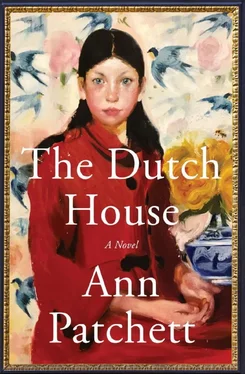
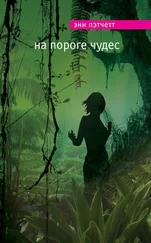

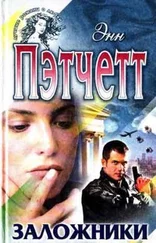
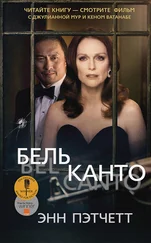
![Энн Пэтчетт - Прощальный фокус [litres]](/books/402782/enn-petchett-prochalnyj-fokus-litres-thumb.webp)
